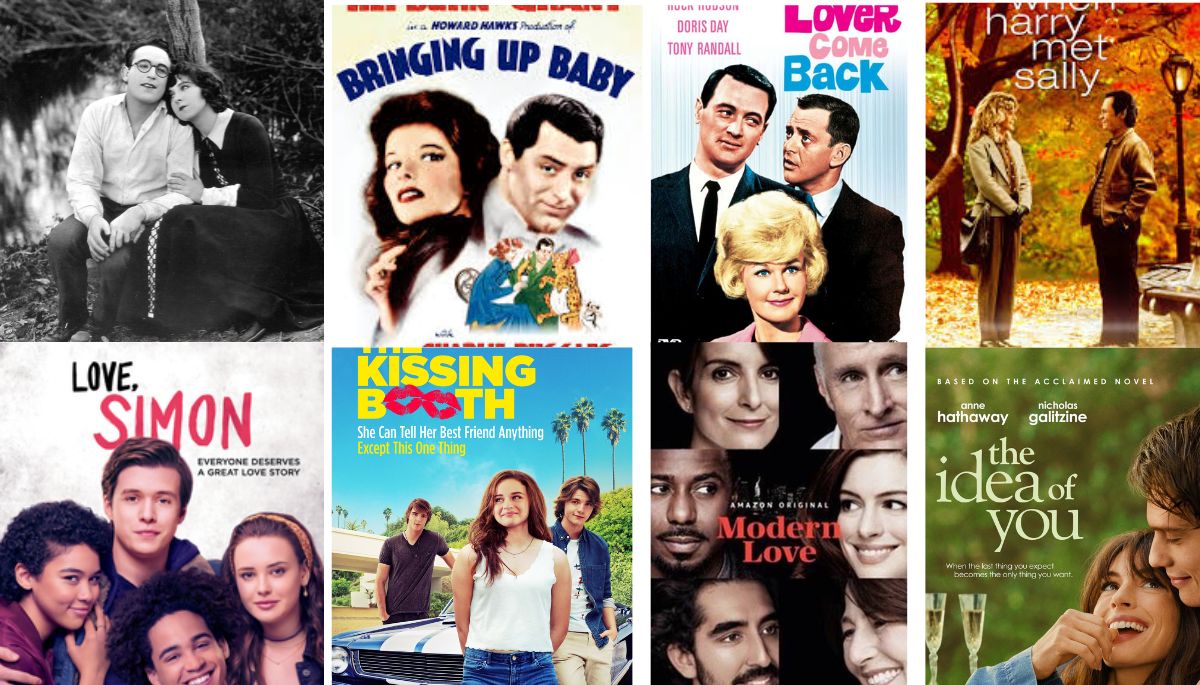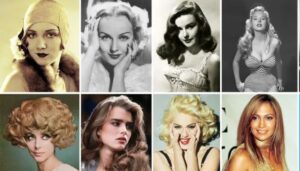Romantic comedies have long been a staple of cinema, capturing hearts and tickling funny bones for generations.
From silent films to streaming sensations, the genre has undergone a remarkable transformation, reflecting changing societal norms and audience expectations.
Let’s take a journey through the evolution of the rom-com and explore how it has revolutionized the way we view love on screen.
The Birth Of A Genre
The romantic comedy formula we know today has its origins in the works of William Shakespeare.
Plays like “Much Ado About Nothing” and “A Midsummer Night’s Dream” laid the groundwork for the classic rom-com structure: two people meet, face conflicts, and ultimately find their way to each other.
This template has stood the test of time, influencing countless films throughout cinema history.
The silent era saw the emergence of early rom-coms, with 1924’s “Sherlock Jr.” and “Girl Shy” paving the way.
However, it wasn’t until the advent of “talkies” in 1928 that the genre truly found its voice, allowing for the clever dialogue and witty banter that would become hallmarks of the romantic comedy.
The Golden Age Of Screwball
The 1930s and 1940s ushered in the era of screwball comedies, characterized by fast-paced dialogue, slapstick humor, and strong female protagonists.
Films like “It Happened One Night” (1934) and “Bringing Up Baby” (1938) set the standard for the genre, offering escapism and hope to Depression-era audiences.
These movies often featured wealthy characters finding love with everyday people, reinforcing the idea that money doesn’t buy happiness.
Battle Of The Sexes
As society evolved, so did the rom-com. The 1950s to early 1970s saw the rise of adult comedies, which explored the differences between men and women more overtly.
Films like “Desk Set” (1957) and “Lover Come Back” (1961) showcased professional rivalries turning into romance.
This shift reflected changing attitudes towards relationships and sexuality, influenced by factors such as the Kinsey Reports and the s*xual revolution.
The 1970s brought about more radical romantic comedies, questioning the very nature of love and happiness.
Woody Allen’s “Annie Hall” (1977) broke new ground by focusing on personal growth and the complexities of modern relationships rather than adhering to the traditional happily-ever-after formula.
The Rom-Com Renaissance
The 1980s and 1990s saw a return to more traditional romantic comedies, albeit with a modern twist.
Films like “When Harry Met Sally” (1989) and “Pretty Woman” (1990) became cultural touchstones, establishing a new wave of rom-com stars like Meg Ryan and Julia Roberts.
These movies often followed a familiar formula but resonated with audiences through their charm and relatability.
Diversity And New Perspectives
In recent years, romantic comedy has undergone another transformation, embracing diversity and tackling more complex themes.
Films like “Crazy Rich Asians” (2018) and “Love, Simon” (2018) have broken new ground by featuring diverse casts and exploring LGBTQ+ relationships.
These movies prove that the romantic comedy formula can be adapted to tell various stories and represent different communities.
Streaming Success And The Future Of Rom-Coms
While traditional Hollywood studios have shifted away from theatrical rom-com releases, streaming platforms have breathed new life into the genre.
Netflix, in particular, has become a powerhouse for romantic comedies, producing hits like “To All the Boys I’ve Loved Before” and “The Kissing Booth” series.
These platforms allow for more niche content and diverse storytelling, catering to specific audience interests.
Television series have also pushed the boundaries of the romantic comedy format, exploring relationships in greater depth over multiple episodes or seasons.
Shows like “Modern Love” and “Easy” delve into the messier aspects of love and sex, offering a more nuanced take on romance in the 21st century.
As we look to the future, the romantic comedy continues to evolve. Upcoming releases in 2024, such as “Twisters,” “It Ends With Us,” and “The Idea of You,” promise to bring fresh perspectives to the genre, featuring both established stars and new faces.
The rom-com revolution is far from over. As society continues to change, so too will the stories we tell about love, laughter, and the human heart.




